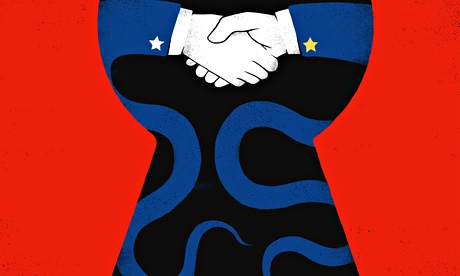Bachi Karkaria in the Times of India
In 1938, a book hit British stands and smugness — To Beg I Am Ashamed: A Frank and Unusual Autobiography by Sheila Cousins, a London prostitute. It was ghostwritten by Ronald Matthews, with considerable inputs from his more celebrated pub chum, Graham Greene. It was prematurely ejaculated from bookshops under pressure from the home secretary, whose hand was forced by the Public Morality Council. A ‘handsome, sound and tight copy’ of the first edition came recently on the market, priced at $13,165, not only because it was in ‘fine condition’ but because the book’s hasty withdrawal had made it extremely rare.
A less welcome development on the same subject has resurfaced in India where, even in the 21st century, we still get our knickers in a twist whenever the uncomfortable fact of prostitution is forced upon our delicate (read hypocritical) sensibilities.
One seldom agrees with Lalitha Kumaramangalam when, as BJP-appointed chairperson of the National Commission for Women, she defends the indefensible sexist statements of the Sangh Parivar’s rabid rump. But her recent support for legalising sex work makes eminent sense. Predictably, it has led to a decibel level of protest louder than a brothel brawl.
To see, understand and finally accept the merits of such legalisation, we first need to make two clear demarcations. One, we have to rid our minds of the semantic baggage of ‘prostitute’ (or whore, harlot, fallen woman); the noun has become a hiss verb outside its native place. Its loaded subtext of immorality of any stripe puts a mental block in the way of accepting sex work as economic activity — which is precisely what it is for these women (and men and transgenders) grappling with their no-exit destiny.
Two, we need to separate the desirable idea of legalising sex work from the reprehensible idea of legalising exploitation. It is nobody’s case that we legitimise abduction and abuse. But the opponents of legalised sex work deploy this sophistry, mixing up these two entities. We need to fight the predator trafficker and pimp, not their prey. Yes, we have to punish abusive clients too, but, get real guys, in which Utopian age can we seriously expect to implement what the UN’s Palermo Protocols grandly call a ‘demand reduction’ strategy? Abuse reduction is more important, and arguably more doable.
It is the world’s oldest profession, remember? And the need for commercially provided sex hasn’t noticeably changed, despite a range of onslaughts ranging from the fire-and-brimstone brigade to AIDS. Or there’s the Khushwant Singh solution. Addressing a conference called to ‘eradicate prostitution’ in the early 1970s, the irreverent sardar told the starched and genteel assembly, “This will happen only when the amateur drives out the professional.”
More seriously, while tracking the emerging AIDS epidemic in the 1990s, my experience of Mumbai’s sordid red-light district was something of an epiphany, stripping me of my own ignorant prejudice and pettiness. Women have ended up here from various situations — abducted, abandoned, serially sold, or just plain impoverished — but for them this is now work, using their only sweat equity to keep body and soul together, children in school, parents in medicine, whole families in the ‘decency’ which holier-than-thou lofty society denies these breadwinners.
In those AIDS-decimating times, brothels were trapped between life and livelihood. In the early years, they were in denial; madams refused even to put up the NACO posters on safe sex, afraid these would stamp their establishment with HIV’s taint, and scare away clients. Later, there was no hiding from the grim toll which halved the population of those infamous cages.
The new stigma and the prostitute’s ages-old pariah-fication proved a lethal cross-infection, denying them medical help. If legal safeguards had been in place, they would not have been thrown on to the even meaner street, slipped off the radar of surveillance, been forced to sell themselves cheaper — and with no clout to insist on condoms, infected clients who then took HIV home to unwitting wives and unborn children.
So i don’t buy the argument of feminist columnist Rami Chhabra on this page last week which talked of ‘powerful foreign donors (who) backed prostitution’. Yes, there were condom-centric programmes because prophylactics were easier to hand out rather than the more-laborious behaviour change. But this is a cynical argument because condoms — compulsorily and correctly used by high-risk communities — were the first line of defence. The red-haired Australian Cheryl Overs, who switched to law to fight AIDS gave me a pithy quote: ‘A condom is to a brothel what a hard hat is to a construction site: essential safety equipment.’
One can ignore the sanctimonious unwashed who persist with the immorality argument and/or are in unredeemable denial about the sexual ‘need’ of the client, let alone the less escapable economic one of the prostitute. There’s even one lot which denounces the term ‘sex worker’ because it ‘debases legitimate workers’.
But what’s the excuse of aware feminists who refuse to accept the economic reality, spout ‘bodily integrity’ and continue to oppose legalisation on grounds of exploitation? Be logical ladies, if we don’t provide that vital umbrella, how can the sex worker challenge the sexual violence which rains down on her with such impunity?



